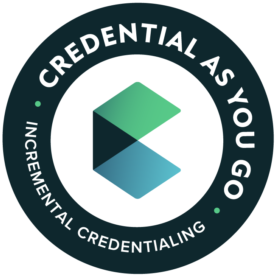There are many credential quality frameworks that can help guide states, programs, and higher education institutions seeking to ensure quality, trustworthiness, and value of credentials. Four key frameworks are those from the Education Strategy Group, Rutgers University’s Education & Employment Research Center, the Education Quality Outcomes Standards Board, and the National Skills Coalition.
| Education Strategy Group (ESG) | Education Quality Outcomes Standards Board (EQOS) | Education & Employment Research Center at Rutgers, The State University of New Jersey | National Skills Coalition (NSC) |
| Credential Currency: How States Can Identify and Promote Credentials of Value | Quality Assurance Standards: Framework and Outcomes Metric | Non-Degree Credentials: A Conceptual Model for Quality and other tools to address quality in nondegree credentials | Expanding Opportunities: Defining Quality Non-Degree Credentials for States |
To address the lack of comparability among various credential quality frameworks—including varying definitions and measures of quality for credentials and outcomes—Credential Engine works with organizations to map their frameworks to the Credential Transparency Description Language.

Credential As You Go has acquired three phases of funding to date. Lumina Foundation funded Phase I, resulting in the Incremental Credential Framework for testing. The Institute of Education Sciences, U.S. Department of Education funds Phase II (Grant R305T210063), which focuses on rapid prototyping of and research on incremental credentials with a national campaign. An anonymous private donor fund at the Program on Skills, Credentials & Workforce Policy at George Washington University funds the development of the prototype Learn and Work Ecosystem Library. Walmart funds Phase III, which focuses on systems change for expansion and sustainability of incremental credentials. The opinions expressed are those of the authors and do not represent views of Lumina Foundation, Institute of Education Sciences, the U.S. Department of Education, Walmart, or George Washington University.